As his situation is very dangerous he asked me to use his boots (you see that I am wearing them), so that I could get here
faster.”
The good woman was very frightened and gave him everything she had, for this ogre was a very good husband, even though he used to eat up little children. Tom Thumb, having got all the
ogre’s money, came home to his father’s house, where he was received with great joy.
There are many people who do not agree with this version of the story and pretend that Tom Thumb didn’t rob the ogre, and that he only thought that he might with a clear conscience take
off the ogre’s seven-league boots, because he only ever used them to run after little children. These people are very sure of this, because they have often eaten and drunk at the
woodcutter’s house. They say that when Tom Thumb had taken off the ogre’s boots, he went to the palace, where they were very anxious about the army, which was 200 leagues away, and the
success of a battle in which it was engaged. They say that he went to the king and told him that he would, if he so wished, bring him news of the army before nightfall. Tom Thumb was as good as his
word and returned that very same night with the news. This first expedition made him famous and he was soon able to earn as much as he wanted.
The king paid him well for carrying his orders to the army, many ladies gave him whatever he asked to bring them news from their lovers, and he made a lot of money doing this. There were some
married women, too, who sent letters with him to their husbands, but they paid him so little that it wasn’t worth his while, and made him so little money that he didn’t take account of
it at all. Having carried on the business of messenger for some time, and having become very wealthy, Tom Thumb went home to his family, who found it impossible to express their joy at his return.
He made the whole family very well off, and bought homes for his father and brothers, setting them up very handsomely in the world. And, in the meantime, he rose high in the king’s
favour.
THE MORAL
At many children parents don’t repine,
If they are handsome; in their judgement shine;
Polite in carriage are, in body strong,
Graceful in mien, and elegant in tongue.
But if perchance an offspring should prove but weak,
Him they revile, laugh at, defraud and cheat.
Such is the wretched world’s curs’d way; and yet
Sometimes this urchin whom despis’d we see,
Through unforeseen events doth honour get,
And fortune bring to all his family.
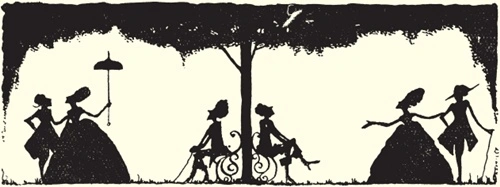
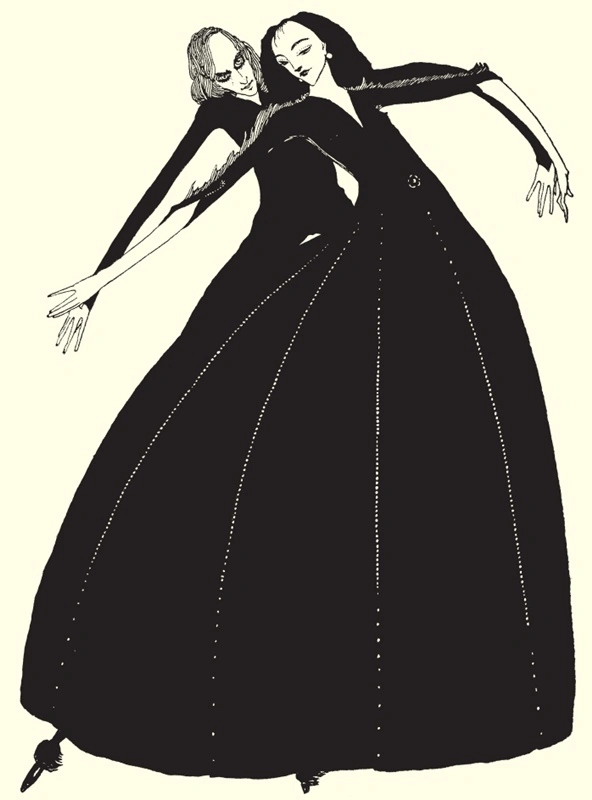
THE RIDICULOUS WISHES
Along time ago there lived a poor woodcutter, who found life very hard. Indeed, he had to work for very little reward, and although he was young
and happily married there were moments when he wished he were dead and buried.
One day while he was working he was once again bemoaning his fate.
“Some men,” he said, “have only to say what they want, and they get it immediately, their every wish fulfilled. But it has done me no good to wish for anything, for the gods
are deaf to my prayers.”
As he said this, there was a huge thunderclap, and Jupiter appeared before him, wielding his mighty thunderbolts. The poor man was overcome with fear and threw himself on the ground.
“My lord,” he said, “do not listen to what I said; do not pay any attention to my wishes, but please stop thundering!”
“Do not be afraid,” answered Jupiter, “I have heard your complaint, and have come here to show you how great a wrong you do me. Hark! I who am the sovereign lord of this world,
promise to grant the first three wishes you make, whatever they may be. Think well about what things will bring you joy and prosperity, and as your happiness is at stake, take your time.”
Having said this, Jupiter withdrew and ascended to Olympus. As for the woodcutter, he happily tied his bundle of sticks and, throwing it over his shoulder, set out for his home. His heart was so
light that it seemed that his load was also light, and his thoughts were happy as he strode along. Many a wish came into his mind, but he was determined to seek the advice of his wife, a young
woman of good sense.
He soon reached his cottage where he threw down his bundle and said to his wife, “Here I am, Fanny. Make up the fire and set the table and don’t hold back. We are wealthy, Fanny,
wealthy for ever more. We have only to wish for whatever we desire.”
He told her the story of what had happened that day. Fanny, who had a quick and active mind, immediately thought of many ways in which their fortune could be advanced, but she approved of her
husband’s decision to act with care and caution.
“It would be a pity,” she said, “to spoil our chances through impatience. We should sleep on it, and wish no wishes until tomorrow.
“That is well said,” answered Harry. “Meanwhile, fetch a bottle of our best wine, and we shall drink to our good fortune.”
Fanny brought a bottle from the store behind the wood pile, and Harry made himself comfortable, leaning back in his chair with his toes towards the fire and his goblet in his hand.
“What fine glowing embers!” he said, “and what a fine fire for toasting! I wish we had a black pudding to toast.”
He had hardly spoken these words when his wife saw, to her great astonishment, a long black pudding coming out from a corner of the hearth, winding and wriggling its way towards her. She cried
out in fear, and then again in dismay, when she realised that this strange occurrence was due to the wish so rashly and foolishly uttered by her husband.
“What!” she said to him, “When you can ask for a kingdom, for gold, pearls, rubies, rich garments and untold wealth, is this the time to set your mind on black
puddings!”
“No,” answered the man, “it was thoughtless, and a sad mistake, but now I shall be on my guard, and shall do better next time.”
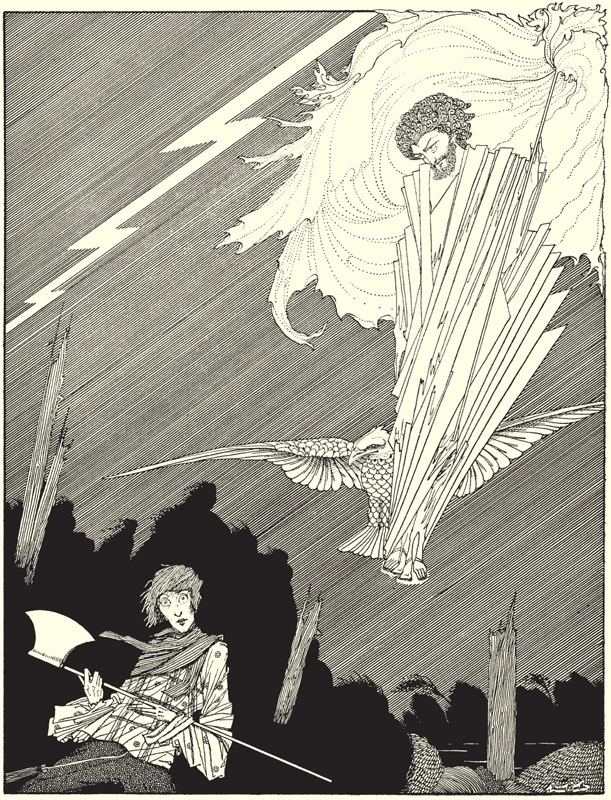
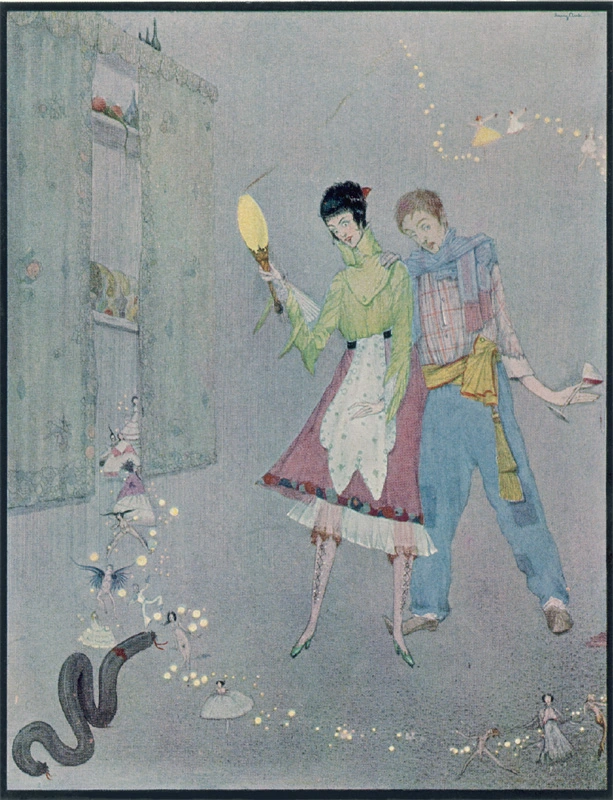
“A LONG BLACK PUDDING CAME WINDING AND WRIGGLING TOWARDS HER”
“Who knows what you will do?” returned his wife, “Once a witless fool, always a witless fool!” And giving free rein to her anger and bad temper she continued to scold her
husband until he too was angry, and he almost made a second wish and wished himself to be a widower.
“That’s enough, woman!” he shouted at last, “Be quiet! Whoever heard such impertinence as this! A plague on you and your pudding – I wish to goodness it hung on the
end of your nose!”
No sooner had the husband uttered these words than the wish was granted, immediately, and the long coil of black pudding appeared grafted to his angry wife’s nose.
Harry paused when he saw what he had done. Fanny was an attractive young woman, blessed with good looks, and this new ornament did nothing to set off her beauty. However, it offered one
advantage: as it hung right in front of her mouth, it effectively stopped her talking.
So, having only one wish left, he had all but decided to make good use of it without further delay, and before he had any further mishap, to wish for a kingdom of his own. He was about to say
the word, when he had a sudden thought.
“It is true,” he said to himself, “that no one is as great as a king, but what about the queen who shares his dignity? How would it look if she were sitting beside me on the
throne with a length of black pudding for a nose?”
He decided to ask Fanny to resolve this dilemma, and to let her decide whether she would rather be a queen, with this horrible appendage blighting her good looks, or remain a peasant wife, but
with this unwanted addition removed from her lovely nose.
Fanny’s mind was soon made up. Although she had dreamed of having a crown and sceptre, a woman’s first wish is to please.

Everything else has to yield to this great desire, and Fanny preferred to be beautiful in plain clothing, than to be a queen with an ugly face.
So our woodcutter did not change his situation, did not become a king or fill his purse with money. He was happy enough to use his remaining wish for a less exalted purpose, and he relieved his
wife of her affliction.
THE MORAL
Ah! so it is that miserable man,
By nature fickle, blind, unwise, and rash,
Oft fails to reap a harvest from great gifts
Bestowed upon him by the heav’nly gods.
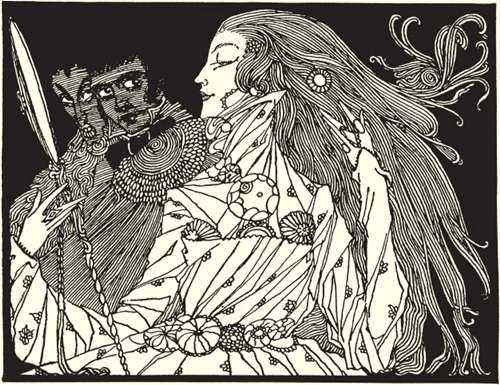
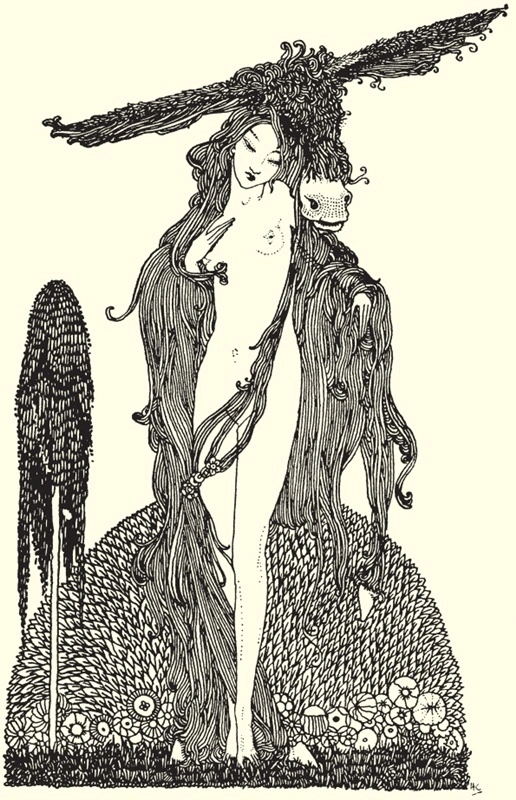
DONKEY SKIN
Once upon a time there was a king who was so great, so loved by his people and so respected by the neighbouring kings and his allies that it could
almost be said that he was the happiest king alive.
1 comment